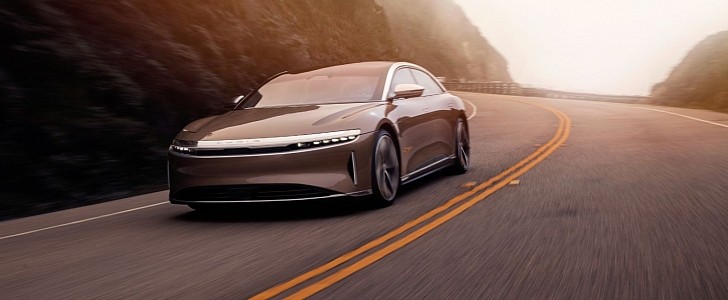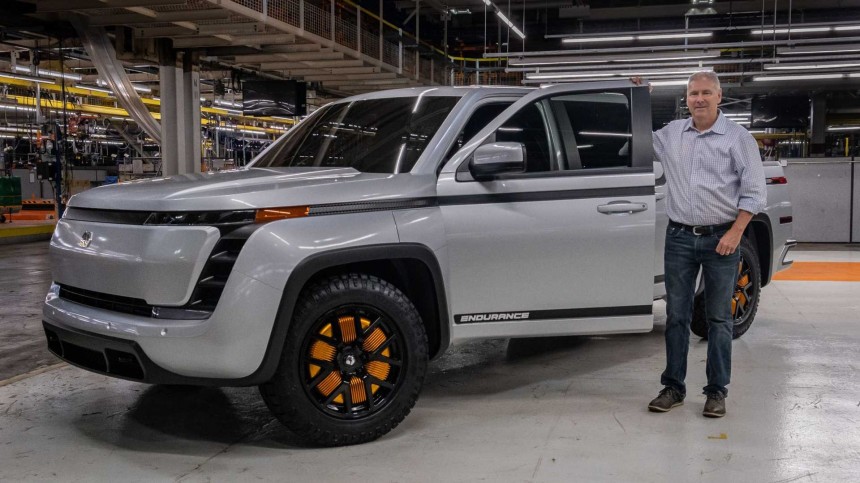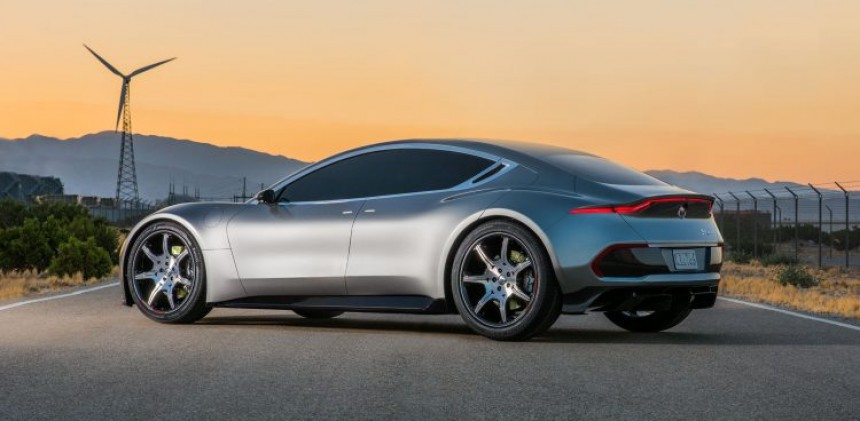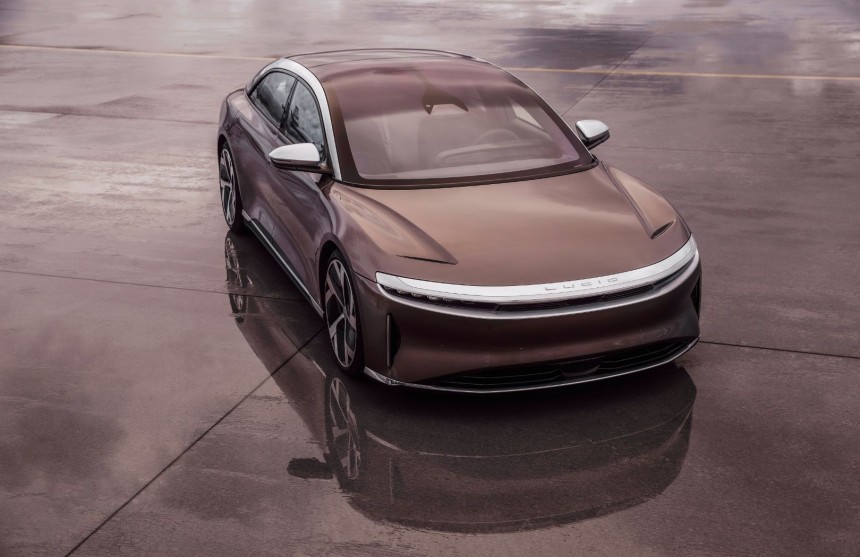If you’re an investor right now and you’re considering how to place your bets on the next big thing in electric vehicles, the field is narrower than you might imagine. There are currently a huge number of companies from the major automotive players to the tiny garage outfits promising electric vehicles or developing critical components.
Just before the market crash in 1929 in America, there were about 40 automakers plying their trade, and within a few short years that number had plummeted to what are now called “The Big Three” here in the U.S. and it’s reasonable to expect the same will happen again.
“Over the next 5 years, there’s going to be some remarkable growth for some of these companies,” says Brett Smith, the Director of Technology Research at the Center for Automotive Research. “But there will be some that don’t grow and struggle. There’s more to be optimistic about with these companies than there was five years ago, because the tech is getting closer to broader adoption. The problem is that the traditional car companies have been getting into it too now and competition is tougher.’
While it appears Tesla Inc. is the clear leader in the field, startups promising novel technologies and legacy automakers are catching up. So which of these companies will succeed and which of them will soon come up missing.
As it now stands, industry experts say there are literally hundreds of startups active in the electric vehicle space. Whether engaged in building cars and trucks, developing battery technologies or working on fuel cells and related technologies, there are some 700 startups currently hoping to claim their share of the nascent market.
Shares of EV startups, which were once hyped at certain winners, have seen their value plummet as they were beset by issues ranging from regulatory problems to lawsuits to management turnover. When you consider that pandemic-related challenges such as the semiconductor shortage and supply chain disruptions have brought some entrenched players and startups to a standstill, it becomes clear how volatile new markets can actually operate.
For example, three companies generally picked as sure winners, such as Nikola Corp, Lordstown Motors Corp, and Fisker Inc., continue to back up delivery dates for their promised first vehicles.
Fisker seems well-positioned, and according to Adam Jonas of Morgan Stanley, Fisker could be one of the "only EV startups to actually launch on time and ramp efficaciously in late 2022.”
Rivian, one of the best-positioned and funded EV makers in the U.S. actually rolled their first customer vehicles off the line earlier this week. Rivian has raised $10.5 billion, but Lordstown is an entirely different story. The electric truck-maker took over a GM factory but faced an investigation by the Securities and Exchange Commission and the Justice Department and internal management turmoil in recent months. As a result, their stock value took a hit, and the company is now facing credibility issues when it comes to promised delivery dates.
Workhorse Group Inc. and Nikola Corp. are also embroiled in various legal difficulties.
Keep in mind tnvestor money tends to flow toward safer bets and established companies such as Volkswagen, Hyundai, and Ford Motor appear to be comfortably positioned to transition into an EV vehicle future.
So, where do you put your money if you’re willing to bet on an outsider? Fisker and Lucid seem likely to survive this shakeout and take some share of the market from the major automakers.
The Lucid Air Sedan is still expected to debut in 2021. The California startup hopes to begin deliveries of its luxury five-seater sedan late this year, and the target market is clearly aimed at buyers of the rival the Tesla Model S. Lucid say they’ll offer a choice of one or two motors, AWD, and up to 1,080hp of power. The promise is that their top model will cover 0-60 mph in around 2.5 seconds and will offer an estimated range of up to 500 miles.
Lucid says their driver-assist technology using cameras, radar, ultrasonic sensors, and LiDAR is called DreamDrive and functions as an “invisible co-pilot.” Coupled with features like a 34-inch glass display dashboard, 300-kW, fast charging and free access to a high-speed charging network for three years, Lucid plans to sell the Air Sedan for approximately $77,400.
“Over the next 5 years, there’s going to be some remarkable growth for some of these companies,” says Brett Smith, the Director of Technology Research at the Center for Automotive Research. “But there will be some that don’t grow and struggle. There’s more to be optimistic about with these companies than there was five years ago, because the tech is getting closer to broader adoption. The problem is that the traditional car companies have been getting into it too now and competition is tougher.’
While it appears Tesla Inc. is the clear leader in the field, startups promising novel technologies and legacy automakers are catching up. So which of these companies will succeed and which of them will soon come up missing.
Shares of EV startups, which were once hyped at certain winners, have seen their value plummet as they were beset by issues ranging from regulatory problems to lawsuits to management turnover. When you consider that pandemic-related challenges such as the semiconductor shortage and supply chain disruptions have brought some entrenched players and startups to a standstill, it becomes clear how volatile new markets can actually operate.
For example, three companies generally picked as sure winners, such as Nikola Corp, Lordstown Motors Corp, and Fisker Inc., continue to back up delivery dates for their promised first vehicles.
Fisker seems well-positioned, and according to Adam Jonas of Morgan Stanley, Fisker could be one of the "only EV startups to actually launch on time and ramp efficaciously in late 2022.”
Workhorse Group Inc. and Nikola Corp. are also embroiled in various legal difficulties.
Keep in mind tnvestor money tends to flow toward safer bets and established companies such as Volkswagen, Hyundai, and Ford Motor appear to be comfortably positioned to transition into an EV vehicle future.
So, where do you put your money if you’re willing to bet on an outsider? Fisker and Lucid seem likely to survive this shakeout and take some share of the market from the major automakers.
Lucid says their driver-assist technology using cameras, radar, ultrasonic sensors, and LiDAR is called DreamDrive and functions as an “invisible co-pilot.” Coupled with features like a 34-inch glass display dashboard, 300-kW, fast charging and free access to a high-speed charging network for three years, Lucid plans to sell the Air Sedan for approximately $77,400.














